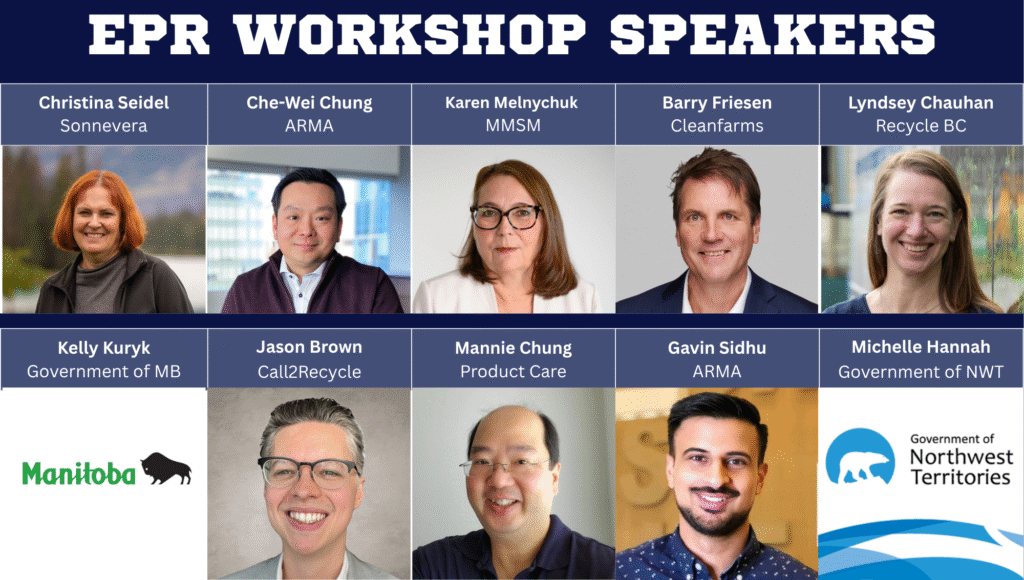
Extended Producer Responsibility (EPR) continues to reshape waste management across Canada, and this year’s SWANA Northern Lights Chapter Conference hosted a dedicated workshop bringing together program leaders from every corner of the country. The session provided a national snapshot of how provinces and organizations are implementing and refining EPR systems, highlighting opportunities, challenges, and progress in shifting responsibility from municipalities to producers.
Lyndsey Chauhan (Recycle BC) opened the workshop with an overview of British Columbia’s long-standing leadership in EPR. She explained how the province’s regulated model has become a benchmark across Canada, with producers held accountable for the full lifecycle of consumer products. Her presentation emphasized the collaboration between government, Producer Responsibility Organizations (PROs), and industry that underpins BC’s success.
📄 Download Lyndsey’s presentation
Kelly Kuryk (Government of Manitoba) followed with an update on Manitoba’s regulatory framework, which currently includes five stewardship regulations and fourteen operating programs. She highlighted the province’s strong participation among PROs, from batteries and electronics to used oil and antifreeze.
📄 Download Kelly’s presentation
Barry Friesen (Cleanfarms) shared insight into agricultural plastics recycling and the growing importance of EPR in managing farm materials. Cleanfarms now oversees recovery for more than 62,000 tonnes of agricultural plastics annually, ranging from grain bags to containers and twine. Friesen also discussed how regulated programs and voluntary initiatives are helping transition ag plastics into circular systems.
📄 Download Barry’s presentation
Mannie Chung (Product Care) presented on the organization’s three decades of national EPR leadership. He spoke about the environmental benefits of diverting paint, smoke alarms, and household hazardous waste through stewardship programs, emphasizing that participation helps extend landfill life, reduce leachate impacts, and lower community costs.
📄 Download Mannie’s presentation
Gavin Sidhu (Alberta Recycling Management Authority) provided an overview of Alberta’s new EPR framework launched on April 1, 2025. Covering single-use products, packaging, and paper products (PPP), along with hazardous and special products (HSP), Alberta’s program represents a major shift toward producer-funded recycling systems. Sidhu also detailed new grant programs supporting landfill and leachate management through recycled materials such as tire-derived aggregate.
📄 Download Gavin’s presentation
Jason Brown (Call2Recycle) shared updates on battery collection programs across Canada, including new EPR-regulated systems rolling out in Nunavut and other jurisdictions. He discussed how Call2Recycle’s voluntary and regulated programs are expanding access to safe, responsible battery recycling for both rechargeable and single-use products.
📄 Download Jason’s presentation
Recycle SK provided a provincial overview of Saskatchewan’s stewardship model, which coordinates several PROs managing diverse material streams—from electronics and paint to tires and oil recovery. The presentation demonstrated how coordinated producer responsibility can deliver consistent service across a broad geographic region.
📄 Download Recycle SK’s presentation
Throughout the workshop, speakers and attendees discussed how cross-provincial collaboration is essential to harmonizing EPR frameworks, improving data collection, and addressing gaps in rural and northern regions. The session underscored the momentum behind EPR implementation and the shared goal of building consistent, transparent systems that advance waste reduction and circularity across Canada.
